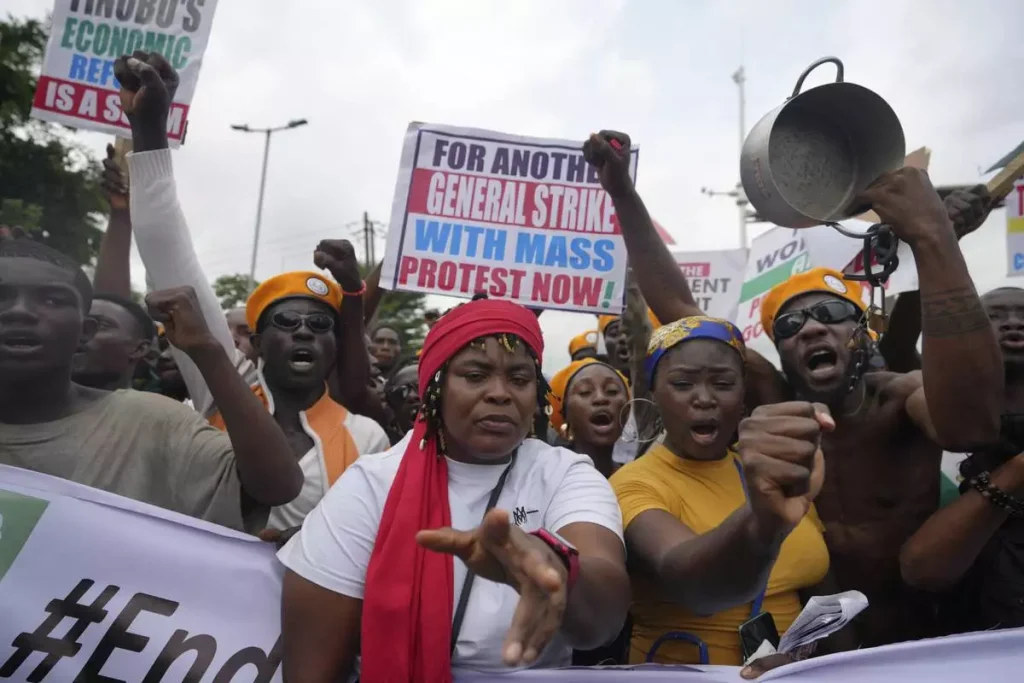Security forces in Nigeria have detained seven Polish nationals accused of playing a ‘suspicious role’ in protests against government policies and economic hardship. The Polish foreign ministry, however, clarified that the detainees are students and a teacher.
Nigeria is currently grappling with its most severe cost-of-living crisis in years, following reforms introduced by President Bola Ahmed Tinubu aimed at reviving the economy and attracting foreign investment.
Protests against these economic hardships erupted nationwide, but they have eased following a security crackdown that, according to Amnesty International, resulted in 21 deaths. Nigerian police and security forces have reported seven deaths but deny responsibility for the fatalities.
In addition to the seven Polish nationals, security agents have arrested dozens of individuals for waving Russian flags during the protests—a gesture reminiscent of recent rallies in neighbouring Niger and Burkina Faso, where coups have led to governments aligning more closely with Moscow.

The Polish citizens were arrested in Kano, a state in the northwest, due to what the Department of State Security (DSS), Nigeria’s national security agency, described as their “suspicious role in the protest and flying of Russian flags.” The DSS provided no further details about the specific actions of the seven individuals during the protests.
Poland’s Deputy Minister of Foreign Affairs, Andrzej Szejna, said that the six students and their teacher were simply “in the wrong place at the wrong time.”
In a statement, Warsaw University confirmed that the Chancellor of Bayero University in Kano has assured them of the students’ safety, and that they are currently in Abuja. The university is working in coordination with Poland’s Ministry of Foreign Affairs, consular services, and other relevant institutions, while maintaining contact with the students’ families.
Since the onset of the protests, President Tinubu has addressed the nation, urging citizens to remain patient with the reforms, which the government insists will benefit the economy in the long term. However, the country’s military leadership recently claimed that the protests had been hijacked by “sponsors” aiming to destabilise the government.
The protest movement, tagged #EndbadGovernanceinNigeria, gained widespread support online, calling for reduced fuel prices and urgent action to address the cost-of-living crisis, among other demands.


